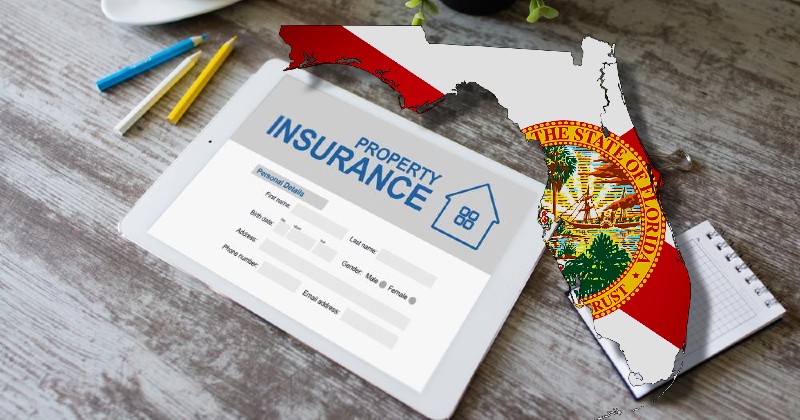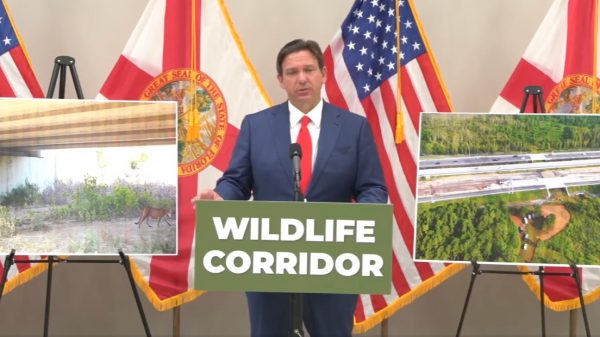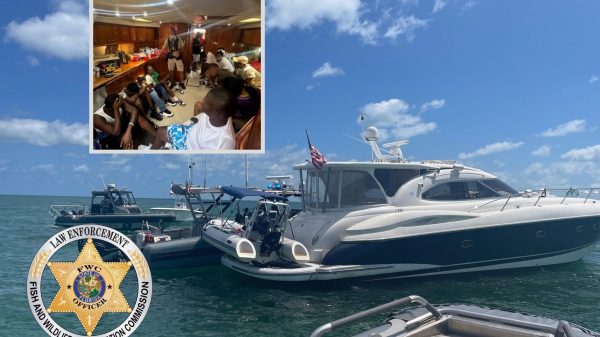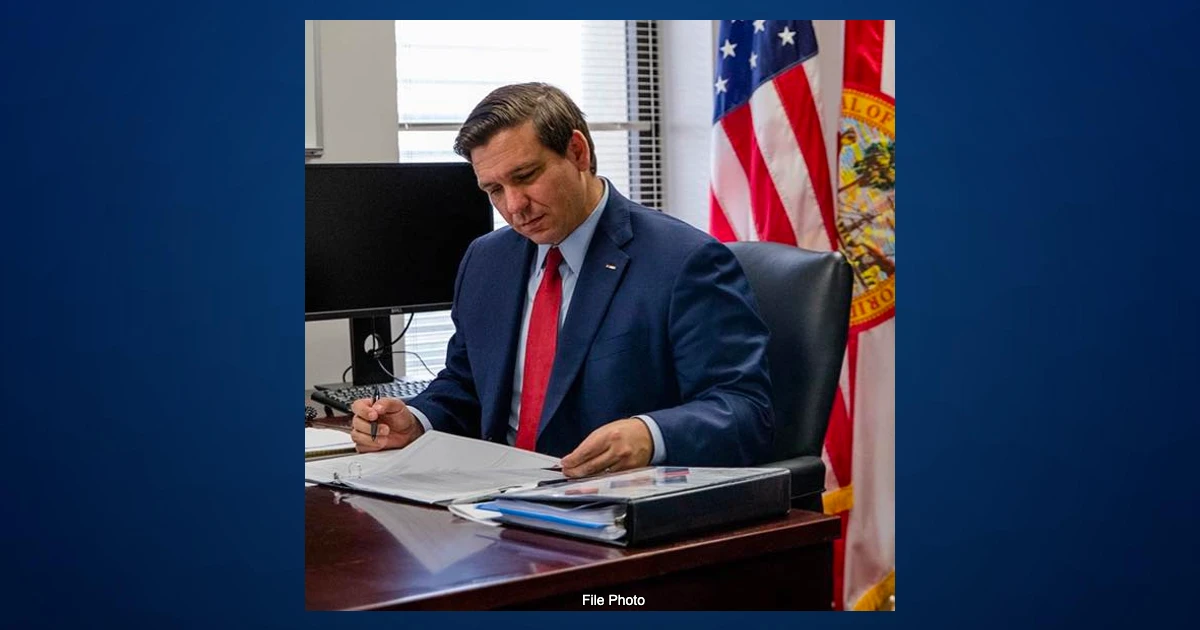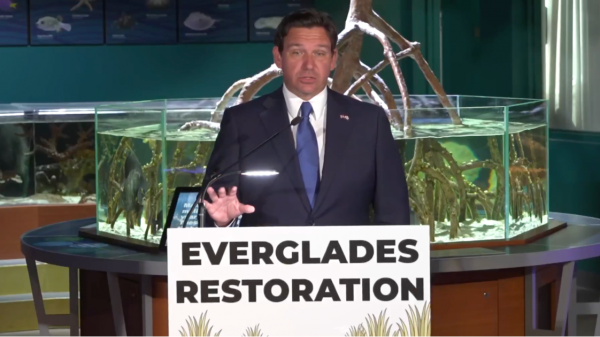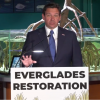This week, during a special session in Tallahassee, the Florida Legislature passed bills focused on property insurance, hurricane relief, and reforming how drivers pay for tolls.
“This Special Session was all about relief,” said House Speaker Paul Renner, R-Palm Coast “I am proud of the work the House did striking a difficult but careful balance to stabilize Florida’s property insurance market and the growth of Citizens Insurance. We have created more competition in the marketplace and have taken significant measures to reduce frivolous lawsuits, all while holding insurers accountable to consumers.
“The House also took important steps to provide disaster relief to Florida families recovering from Hurricanes Ian and Nicole and designed a toll relief program that saves Florida commuters money,” Renner added.
“The legislation we passed today brings meaningful assistance for challenges facing constituents across Florida. The toll rebates for frequent commuters and property tax refunds for those whose homes are uninhabitable following recent hurricanes provide swift, tangible relief that will make a difference in the pocketbooks of Florida families,” said Florida State Senate President Kathleen Passidomo, R-Naples. “We know we can’t rebuild a hurricane-destroyed home or lower homeowners insurance rates overnight, but the reforms passed today lay the groundwork for long-term improvements that will give people a place to live while their homes are being repaired or rebuilt as well as structural, pro-consumer changes to our property insurance market that will stabilize the market with the goal of reducing rates over time.”
The Legislature passed a property insurance reform bill from state Sen. Jim Boyd, R-Bradenton, and state Rep. Tom Leek, R-Ormond Beach.
The senate leadership painted the bill as “a comprehensive bill intended to ensure policyholders have access to quality, affordable private market property insurance” which “requires insurers to more promptly communicate, investigate and pay valid claims” and offered some of the reasons behind the bill. “Anticipated shortages in the reinsurance market are addressed through a new optional state reinsurance program. Excessive litigation, known to drive up costs, is addressed by eliminating one-way attorney fees for property insurance and instead allowing both parties the opportunity to obtain fees through the offer of judgment process. The bill also strengthens the regulatory authority of the Office of Insurance Regulation over property insurers.” The proposal also includes a $1 billion reinsurance fund.
The bill passed on largely party lines, clearing the Senate on a 27-13 vote and the House on an 84-33 vote.
“I am proud of the reforms we enacted during this special session,” said Leek.“The carefully considered provisions in this legislation will expand capacity in the property insurance market, increase accessibility for consumers, and hold insurers accountable.”
“With this legislation, we are trying to stabilize a market that is in freefall. Seven carriers have gone insolvent in the past two years, reinsurance is shrinking in the global markets as costs are going up, and Citizens Property Insurance is ballooning once again with more than 1 million policy holders, creating huge liabilities for taxpayers and the threat of assessment for all insurance policyholders. This is an environment that cannot sustain itself,” said Boyd.
“Senate Bill 2A builds on the consumer-friendly reforms we passed in May, working to curb rising rates and bring stability to the market for the benefit of consumers. We are striving to help consumers who have paid too much for too long for their insurance coverage so a few bad actors can make millions of dollars on the backs of hardworking Floridians. Forty other states have implemented what we have done here today, with no indication of problems, as over 75 percent of the litigation nationwide still comes from Florida,” Boyd added. “This is about consumer protection. This is about eliminating abusive lawsuits. This is about increasing opportunities in the market for more carriers to come down here and write policies, driving down costs for consumers.”
Democrats in the Florida Legislature took aim at the proposal.
“I do not want Florida to become a place where only investment firms and multimillionaires can afford to have property insurance. For so many, owning a home here is the culmination of decades, sometimes generations, of hard work. Unfortunately, it’s becoming too expensive to attain the American Dream of homeownership in the Sunshine State,” said Florida House Minority Leader Fentrice Driskell, D-Tampa. “There’s a reason the previous Special Session’s bill had bipartisan support in the House and this one did not. This will not give Floridians the help they needed from their elected officials. We are paying the highest premiums in the country and nothing we did today will change that any time soon.”
“It’s time to give Floridians a bailout; finding additional ways for insurance companies to wiggle from under a claim or increase premiums is unacceptable. Our citizens deserve more. According to the Republicans, this bill gives ‘hope.’ I stand to tell them, ‘hope don’t pay bills.’ Our citizens are crying out we can do better and we must do better,” said state Rep. Patricia Williams, D-Pompano Beach.
The leadership of the business community applauded the Legislature for passing the bill, including Mark Wilson, the president and CEO of the Florida Chamber of Commerce said:
“The Florida Chamber applauds Governor Ron DeSantis and Florida’s House and Senate leaders for their continued efforts to stabilize Florida’s property insurance market and protect Florida’s consumers from hurricane taxes, diminishing coverage options and increasing affordability challenges. The passage of Florida Chamber-backed Senate Bill 2A protects Floridians by making significant strides towards long-standing Florida Chamber priorities, specifically reining in Florida’s lawsuit abuse problems, eliminating cost drivers ripe for fraud such as assignment of benefits, and reducing future hurricane taxes by taking steps towards returning Citizens Property Insurance Corporation back to the insurer of last resort,” said Wilson.
Both parties came together to back a proposal from state Sen. Travis Hutson, R-Palm Coast, and state Rep. Stan McClain, R-Ocala, that provides funds to help Florida recover from Hurricanes Ian and Nicole. There was no opposition in either chamber to this proposal.
“The bill provides property tax refunds for the portion of the year that homes were uninhabitable due to hurricane damage from Hurricanes Ian or Nicole. The bill also includes $150 million for affordable housing hurricane recovery efforts, including $60 million to assist with the repair or replacement of housing, relocation costs, limited-time rental assistance, and other recovery needs, of which $25 million may be used to provide assistance to homeowners to pay insurance deductibles,” Passidomo’s office noted. “SB 4A appropriates funding through the Department of Environmental Protection for beaches and essential water infrastructure impacted by Hurricanes Ian and Nicole and creates the Florida Emergency Management Assistance Foundation, a Direct Support Organization (DSO) of the Division of Emergency Management (DEM). The foundation is charged with providing assistance, funding, and support to DEM in its disaster response, recovery, and relief efforts for natural emergencies. Additionally, to help local governments secure FEMA grants, $350 million is appropriated to the DEM to pay local match requirements.”
“This legislation builds on the tremendous and ongoing state response to Hurricanes Ian and Nicole led by Governor DeSantis with key funding to support Floridians and communities who are recovering and rebuilding,” said Hutson. “Tax relief for owners of destroyed homes, housing assistance for displaced Floridians, funding to help local governments secure FEMA Grants, as well as funding to reconstruct impacted beaches and water infrastructure will make a huge difference as families and communities continue to evaluate their recovery needs.
“The governor and First Lady have worked tirelessly on behalf of Floridians affected by Hurricanes Ian and Nicole,” said McClain. “Speaker Renner and our Senate partners have been dedicated to meaningfully adding to those disaster relief efforts. I look forward to working with our local partners across the state to understand their needs and assist in recovery.”
State Sen. Linda Stewart, D-Orlando, said the bill would help Central Florida.
“I’m proud to vote in favor of bringing much needed relief to Orange County and the other municipalities in Florida that were hit the hardest during this unforgiving hurricane season,” she said. Her office noted the bill “provides disaster relief efforts via property tax refunds and additional funding to assist Floridians and their communities rebuild and recover from the 2022 hurricane season” and laid out some of the details.
“The bill provides property tax refunds for the portion of the year that homes were uninhabitable due to hurricane damage from Hurricanes Ian or Nicole. The bill also includes $150 million for affordable housing hurricane recovery efforts, including $60 million to assist with the repair or replacement of housing, relocation costs, limited-time rental assistance, and other recovery needs, of which $25 million may be used to provide assistance to homeowners to pay insurance deductibles. Additionally, to help local governments secure FEMA grants, $350 million is appropriated to the Department of Emergency Management to pay local match requirements,” Stewart’s office noted.
Florida TaxWatch President and CEO Dominic Calabro also weighed in on the bill.
“Naturally, as the ‘eyes and ears’ of taxpayers, Florida TaxWatch has been monitoring the devastating and pervasive impact of the recent hurricanes, making thoughtful policy recommendations for legislative leaders’ and decision makers’ consideration as they work to facilitate long-term recovery. We commend Governor Ron DeSantis, Senate President Kathleen Passidomo, House Speaker Paul Renner, and the entire Florida Legislature for passing comprehensive disaster relief legislation today, in particular the provision to refund property taxes for Floridians whose homes are uninhabitable as a result of hurricane damage, a concept Florida TaxWatch originally presented back in October, just days after Hurricane Ian made landfall,” Calabro said.
“In fact, Florida TaxWatch is proud that, to date, most of our nine total post-Hurricane Ian recommendations have been implemented or are available to the Department of Revenue as tools to help with assisting impacted residents. We look forward to witnessing how this latest development – which we recognize was made possible by sound fiscal policy that generated an unprecedented level of reserves – will further support ongoing efforts to return the Sunshine State to full strength following back-to-back storms,” he added. “Florida TaxWatch will also be monitoring and reporting on the property insurance and toll-related measures passed during this week’s special session in the months and years ahead.”
Both chambers also passed without opposition a proposal from state Sen. Nick DiCeglie, R-St. Petersburg, and state Rep. Busatta Cabrera, R- Coral Gables, which “appropriates $500 million for a statewide toll relief program for frequent commuters” throughout 2023.
“Customers using a two-axle vehicle with a Florida-issued transponder who use Florida’s Turnpike System and all other toll facilities in the state are eligible. Customers who engage in 35 or more toll transactions in a month will receive a 50 percent credit,” Passidomo’s office noted.
“This legislation provides needed relief to Florida commuters dealing with the challenges of rising costs,” said DiCeglie. “It will make a real impact in the everyday lives of our constituents.”
“Florida workers and commuters fuel our economy,” said Cabrera. “I appreciate the leadership of Governor DeSantis, Lieutenant Governor Nuñez, and Speaker Renner for fighting to establish a 12-month toll relief program that will keep money in the pockets of hardworking Floridians.”
Gov. Ron DeSantis is expected to sign all three bills into law.

